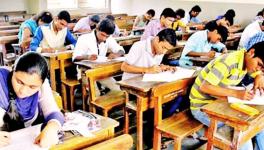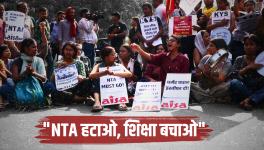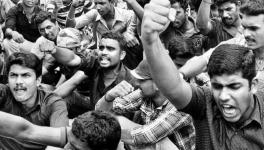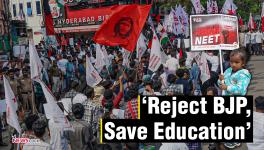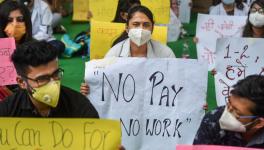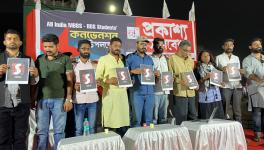Doctor Suicides- More Than Social Bigotry
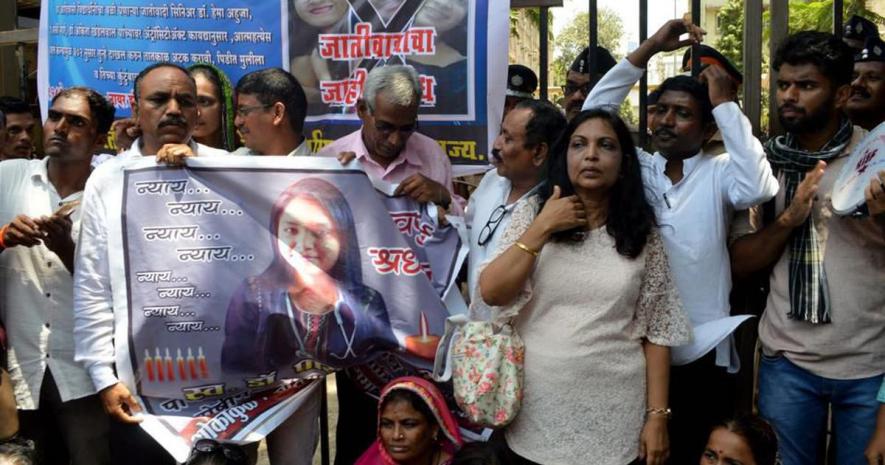
Image Courtesy: Hindustan Times
As the strike by resident doctors throughout the country enters another day demanding security in hospitals, another resident doctor committed suicide in Post Graduate Institute of Medical Sciences, Rohtak, Haryana. Not many days ago, Payal Tadvi, a tribal resident doctor pursuing her post-graduation, had committed suicide. The resident doctors continue to be on strike in Rohtak medical college; they are demanding action against the head of paediatrics department who incidentally happens to be a woman. Dr Omkar, the victim, hailed from Karnataka, he was pursuing his MD (doctor of medicine) in paediatrics. The other demand is for a compensation of Rs 1 crore to his family members.
Why is it that the resident doctors who are considered to be the top-most in brilliance, take such extreme steps? Only about 63,000, after graduating from their senior secondary class, qualify the National Eligibility cum Entrance Test (NEET) (13,26,725 students applied in the NEET exam in 2018) and just 25,000 qualify to pursue post-graduation. This is a dream come true for such people. Suicides by them is a matter of serious concern. It is such a tragedy that the lives that are meant to save others, end so abruptly.
Whereas both Dr Payal and Dr Omkar’s social status has come to light for their victimisation, there is something more that is simmering underneath. The moment of precipitation for Dr Omkar happens to be that his leave was not sanctioned. He had applied for leave to attend his sister’s wedding at his native place in Karnataka. This is just bizarre.
There are no two opinions about the fact that different people will respond differently to the given circumstances, but in India, it is an accepted reality that PG students or junior resident doctors (as they are called), take immense pressure while pursuing their master’s programme. This pressure is one of the principal reasons that draws them towards taking such a drastic step – of committing suicide.
One who has undergone the trauma of pursuing post-graduation and then post-doc or MCh, not as a student but as a spouse, can easily gauge what happens to the individual while pursuing residency and the kind of pressure one undergoes that does not just remain limited to the student but even those who are associated with them closely. My wife who became the first woman surgeon (general surgery) in Himachal Pradesh and then went on to become the first woman cardiao- thoracic surgeon from Post Graduate Institute of Medical Education and Research (PGI) Chandigarh, had to incessantly face such traumas. Being a woman entering a completely male domain was a real roadblock, but being a resident doctor was equally challenging. Initially, efforts were made to ensure that she drops the subject of surgery and later the pressure was to prove herself competent as compared to her male counterparts.
Also Read: https://www.newsclick.in/Bengal-Doctors-4th-Day-Country-wide-Support-IMA
For sure, such a trauma has commonality across the country, invariably in all the medical colleges.
Firstly, this is linked to the massive volume of patients flowing in government colleges and hospitals and withdrawal of the state from investing into the health sector. The resident doctors who carry the larger share of the work pressure, bear the biggest brunt. On top of that, even bare minimum facilities like rest rooms, clean drinking water etc. are not available to resident doctors.
The second reason is linked to the completely undemocratic structure, culture and extreme hierarchy in the profession. The boss, i.e., the Head of the Department (HoD) or even the unit head must be followed in toto. To learn and develop the skills of medicine and especially surgery, one is subject to the wish and will of the boss. ‘Ustad Se Hi Sikhna Hai (all you learn is from the teacher), is the mantra of success for the residents. So, the boss learnt from her boss, and this has continued. Getting a thesis signed can be highly frustrating for the PG student, as on very flimsy grounds she could be asked not just to rewrite, but at times even rebind it.
A junior resident doctor, even if sharp and intelligent, owes her ‘passing the exam’ to her boss. Despite the tremendous labour the resident doctors have to undertake in their studies, it is the boss who generally decides their future.
This creates an environment of super hierarchy where democratic voices and choices are forbidden. Above all, in the absence of a democratic students’ movement in medical college campuses, this hierarchical system is all the more corrosive. For resident doctors from dalit and tribal backgrounds, things are worse.
I remember during my university days in the early 1990s, some professors used the research scholars to do their domestic work, such as fetching vegetables etc. There were strong protest demonstrations against such teachers. But this was never seen in medical college campuses. But, this does not undermine the role of the guide or ‘consultants’, as they call themselves in the medical fraternity, who impart skill and knowledge. The sheer control of bosses over the resident doctors must be eased.
Third, long working hours and no work protocol also make the resident doctors more vulnerable. A resident doctor sometimes works 72 hours without taking a break. This is quite prevalent in medicine, surgery, orthopaedics, gynae and obstetrics etc. How is it possible for such an individual to work with diligence for such extended hours? Trauma and impulsiveness are bound to increase, which manifest in variable ways. I remember two German students in Indira Gandhi Medical College, Shimla, who had come on an exchange programme. They refused to work after 5 p.m. Such is the work environment in the West, but in India we make them work for days together, which is completely unjustifiable.
All that is required is for a more democratic atmosphere, rotating the post of HoD, fixing a protocol for working hours and, above all, increasing the number of post-graduation seats in medical colleges. This, combined with more democratic spaces, may help in reducing the tremendous burden under which the resident doctors work.
Also Read: https://www.newsclick.in/protesting-doctors-turn-down-mamata-offer-talks
The writer is former Deputy Mayor, Shimla. The views are personal
Get the latest reports & analysis with people's perspective on Protests, movements & deep analytical videos, discussions of the current affairs in your Telegram app. Subscribe to NewsClick's Telegram channel & get Real-Time updates on stories, as they get published on our website.









